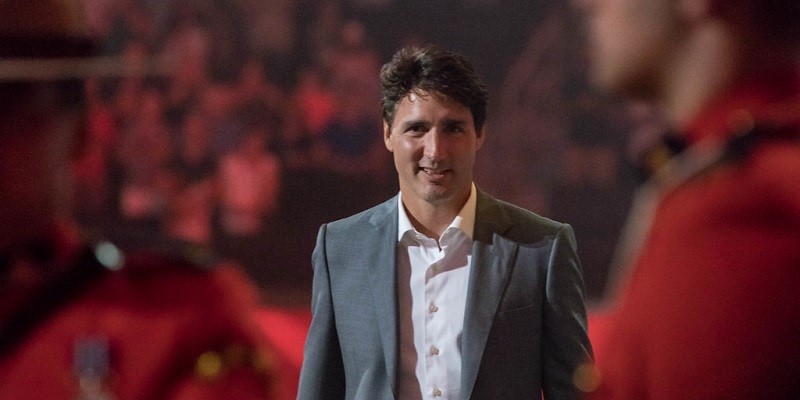It’s reasonable to call Trudeau a modern-day socialist

Prime Minister Justin Trudeau, alongside other national and provincial leaders, can rightly be called a “socialist” in the modern sense.
Socialism, at its core, remains an ideology of the benefits of top-down decision-making by elites, for and in the interests of the collective. Over time, the meaning of socialism has changed and evolved. Its original conception—and technical definition—is state ownership of the means of production, namely factories, machinery, etc. For the most part, there are very few socialists who now advocate for the government to nationalize industries.
Indeed, as communism proved an utter failure in the real world and broadly collapsed in the late 1980s and early 1990s, the meaning of socialism shifted to mean large-scale redistribution. In other words, socialists accepted that firms and industries should be privately owned but that the benefits of markets should be harnessed for collective ends through higher taxes—much higher taxes—to finance higher levels of government spending. Countries in Europe, particularly in Scandinavia, are often pointed to as models of this brand of socialism.
Clearly, the Trudeau government is committed to such expansionary government though it prefers to finance its largesse through borrowing rather than higher taxes, which simply defers higher taxes to the future (that’s a whole other issue).
More interesting, though, is the next frontier of socialism, which focuses on the control of savings and investment through regulation. Put differently, instead of actually owning firms, the next frontier of socialism controls firms and their activities through laws, regulations and other government dictates. This new form of socialism is still evolving and, to varying degrees, embedded in movements known as stakeholder capitalism and ESG (environment, social and governance).
The Trudeau government’s approach to greenhouse gas (GHG) reduction personifies this brand of socialism. The idea of a carbon tax is to add the hidden costs (imposed on third parties and society more broadly) from the emission of GHGs to the cost of emitting. By facing the full costs of emitting GHGs, individuals and firms change their behaviour. For instance, some firms might decide to invest in existing technologies to reduce their emissions, thus reducing their carbon tax costs. Other firms might invest in the search for new technologies with low or zero emissions to replace existing higher-emitting technologies. The key idea, however, is that individuals and firms make decisions based on the costs and benefits they face, and their individual expectations for the future. Put simply, the use of a carbon tax should largely be a bottom-up approach to GHG emissions.
And while Trudeau has advocated for a carbon tax, he does not accept a bottom-up approach that might result in a different outcome than the one he demands. On top of the carbon tax, the Trudeau government has mandated a cap on GHG emissions, though it oddly only affects the 26 per cent of emissions from the oil and gas sector. Further, Trudeau has mandated the end of new vehicle sales that emit GHGs by 2035, thus requiring a complete move to zero emissions new vehicles within 13 years. He’s also cancelled and blocked energy infrastructure projects that do not align with his specific vision for the future.
These are all top-down decisions imposed on individuals and firms. This is the essence of the socialist approach. And like other forms of socialism in the past, this new brand will fail to deliver promised results and impose enormous costs on society.
Authors:
Subscribe to the Fraser Institute
Get the latest news from the Fraser Institute on the latest research studies, news and events.


